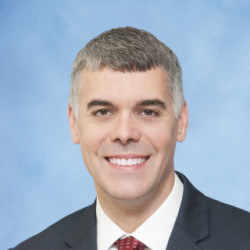The final round of the debate session on March 29th at the 2023 Society for Clinical Vascular Surgery meeting focused on a topic that was neither clinical nor vascular: microaggressions. Dr. Anil Hingorani from NYU Langone-Brooklyn opened the debate with a presentation titled "Microaggressions Impact Physical and Mental Health," followed by "Microaggressions are the Perceptions of Hypersensitive People" by Dr. Leann Chavez from the University of New Mexico. Each presenter then delivered a rebuttal followed by an interactive discussion with the audience.
The debate started with an overview of microaggressions that included the origin of the term, associations with implicit bias, and relevant reviews from the psychology literature. Microaggressions involve feeling hurt by a verbal or non-verbal slight. The person delivering the microaggression may be unaware that they have inflicted pain or made someone feel marginalized. Regardless, these insults and putdowns buried within everyday interactions are remembered long after and can have a cumulative effect that was likened by Dr. Hingorani to death by a thousand cuts.
Dr. Chavez did not argue against microaggressions as a problem, but instead pointed out the consequences of taking them too far. Too much focus on microaggressions may distract from macroaggressions by making a big problem the proverbial needle buried within a haystack of minor slights. Dangerous behaviors may emerge within an environment activated to seek out microaggressions and punish those deemed responsible: people may become withdrawn and afraid to ask sincere questions or express valid concerns. Ironically, this psychology damages feelings of wellbeing and inclusion (in other words, totalitarian avoidance of microaggressions may inflict pain and emotions similar to the harms of the microaggressions themselves). An environment defined by toxic silence should also raise a sense of alarm for healthcare providers, who take pride in working within highly reliable organizations focused on safety and preventing harm. There is an inherent tension between being respectful of others and speaking up, and threading the needle between the extremes isn't always easy. Nobody wants to work with a bully-or a vulnerable narcissist.
Social and organizational contexts are important when thinking about microaggressions. Because the impact occurs regardless of the intent, individuals in positions of power must make an effort to be mentally present and aware of how their words and actions might be interpreted. For example, eye rolling was discussed as an example of a non-verbal microaggression. Rolling your eyes in response to reading this editorial during a work meeting might understandably be received as a microaggression by your colleagues if they care about the agenda. The same could be said for appearing distracted by avoiding eye contact or looking at your phone during a conversation that someone else considers important. Be present, be aware, or beware.
There was agreement between both speakers and the audience that microaggressions should be acknowledged in the moment. This gives the person inflicting the damage an opportunity to become aware, apologize, and course correct in the future. It may also provide a perspective of how our lived experiences influence interpretation of others’ actions and words. We can exhaust ourselves going after every microaggression in pursuit of justice, especially when the triggering individual is unwilling to listen and learn. Dr. Chavez’s advice under those circumstances: remember your own self-worth, where you stand, and what defines your character; someone else's words don't diminish that, and you should not give them power.
I wondered if the debate might degenerate into a ruckus full of strong words, raised voices, and the hostile energy of a tabloid talk show. None of that ensued. The discussions were balanced, respectful, and thoughtful. Both sides made excellent arguments. The audience raised sincere and challenging points that were delivered with respect. Nobody got canceled. Kudos to the SCVS for putting a potentially controversial topic on the agenda and stimulating a substantive and respectful debate that everyone seemed to both enjoy and learn from. Those in attendance hopefully will feel more comfortable giving and receiving respectful feedback when someone else is made to feel uncomfortable, feeling better for the mutual understanding, and moving forward together. The wrap-up deviated from preceding debates in the same session, however, when the moderators announced that there would not be a show of hands to determine the winner. Perhaps we can approach microaggressions with a similar mindset: an opportunity to explore outside of our comfort zone where everyone can benefit without a need to declare a winner or loser.
Dr. Corriere has no conflicts of interest to report.
Image by Visual Generation / Shutterstock







